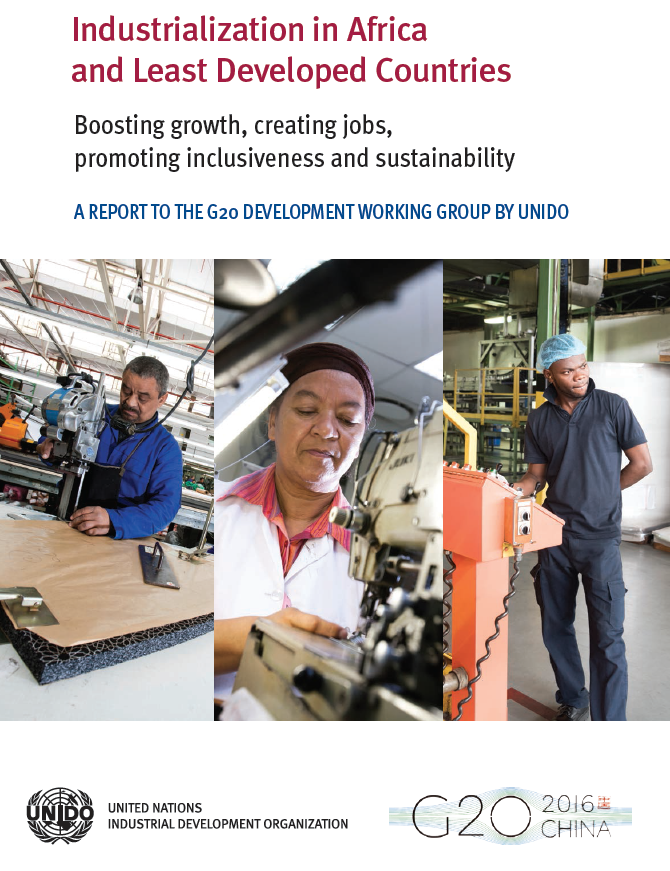UNIDO publishes report on industrialization in Africa and least developed countries for G20 Summit
VIENNA, 1 September 2016 - In the run-up to the 11th G20 Summit taking place in Hangzhou, Zhejiang, China, on 4 and 5 September, the United Nations Industrial Development Organization (UNIDO) has published a new report "Industrialization in Africa and Least Developed Countries. Boosting growth, creating jobs, promoting inclusiveness and sustainability."

The report was prepared at the request of the G20 Development Working Group (DWG), which has been meeting during the year. The G20 DWG has been working to achieve a wide consensus on issues including promoting the implementation of UN 2030 Agenda for Sustainable Development and a comprehensive evaluation of G20 development commitments, strengthening the coordination between the DWG and the other working groups, strengthening policy consistency, supporting the industrialization of African and least developed countries, and strengthening inclusive business cooperation.
The UNIDO report, which benefited from contributions from other international organizations and financial institutions, highlights the important benefits of inclusive and sustainable structural transformation and industrialization for diversifying the economy, creating jobs and building equitable societies. It also shows the benefits to Africa and least developed countries (LDCs) of leveraging trade in intermediate goods, investment, and regional and global value chains.
In order to further its development agenda, the report recommends that the G20 group of leading economies promotes inclusive and sustainable structural transformation and industrialization in Africa and LDCs through various mechanisms, such as knowledge-sharing platforms for peer-to-peer learning; the sharing best of practices, policies, measures and guiding tools; and multi-stakeholder discussions.
Other recommendations include calls for the G20 to support agriculture and agribusiness development; to deepen, broaden and update the local knowledge base; to encourage industrialization through trade and deeper regional integration; and to promote the New Industrial Revolution, including the Internet of things, big data, cloud computing, 3D printing, nanotechnology and biotechnology, in order to improve productivity, reduce energy and resource consumption, and thus protect the environment and increase resource efficiency and effectiveness.
Log in with your EU Login account to post or comment on the platform.